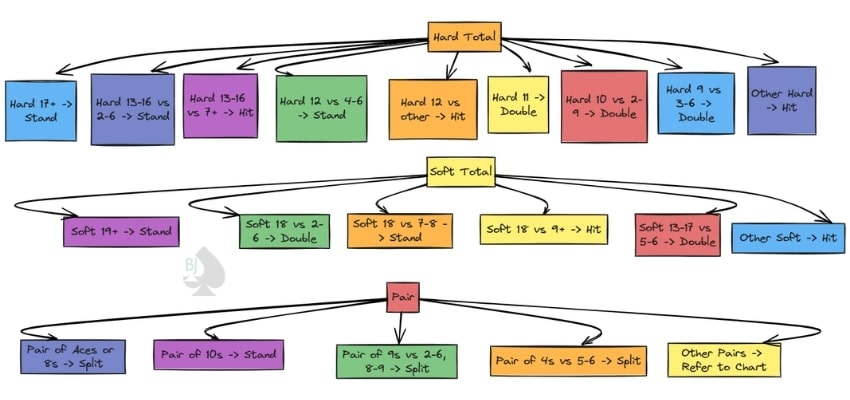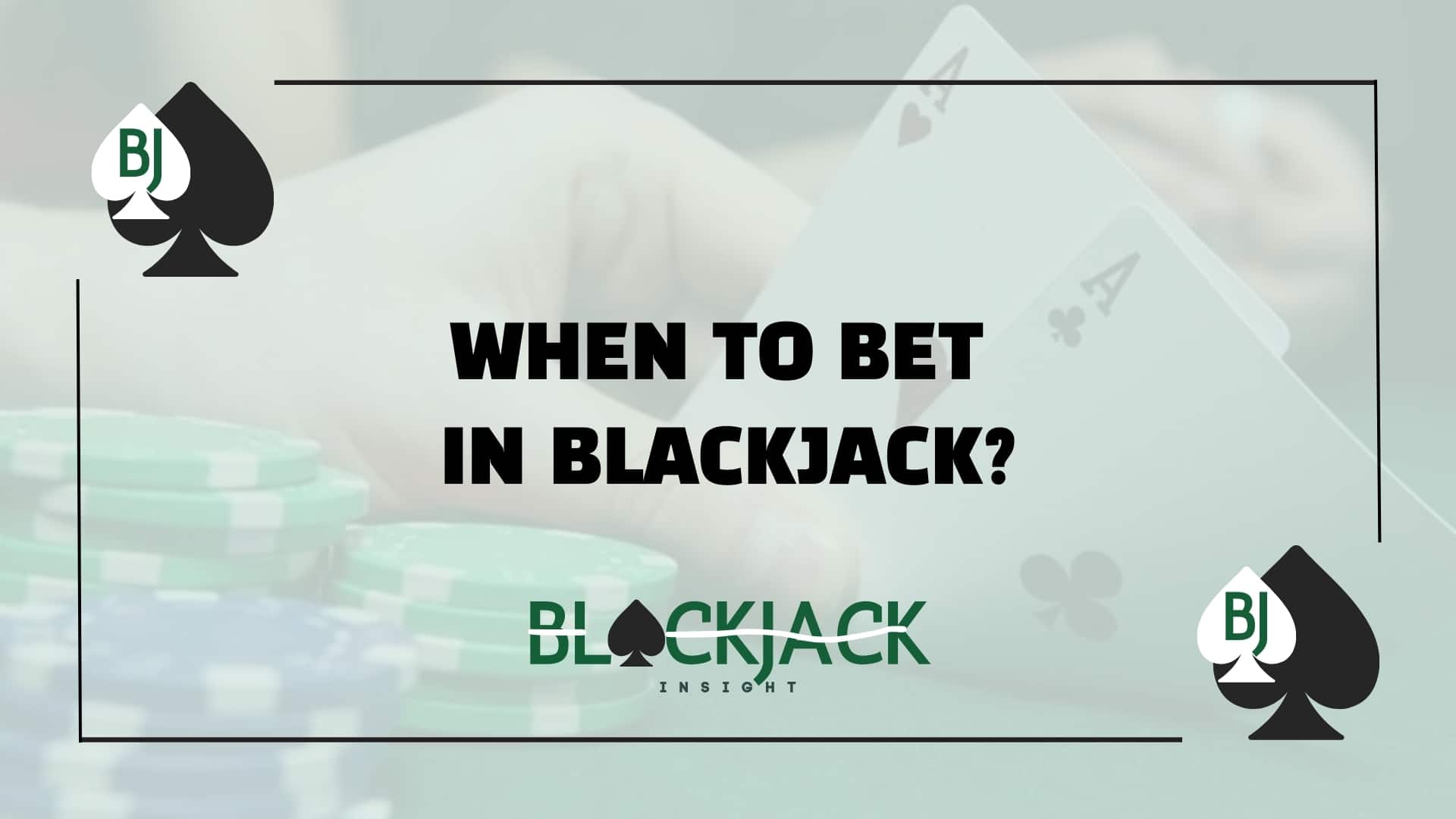When to Bet in Blackjack: To the Smarter Wagers
Table Of Content
In blackjack, you should increase your bet when the odds are in your favor — like after a win, when the dealer shows a weak card (4, 5, or 6), or when the deck flow feels favorable. Bet smaller when outcomes are unpredictable, and sit out if you’re unsure. Strategic betting can boost your edge over time.
If you’ve ever sat down at a blackjack table and thought, “When should I bet more? When should I hold back?”—you’re not alone. Timing your bet in blackjack is one of the most important (and most overlooked) parts of the game. And no, it’s not just about “feeling lucky.” Let’s break down when to bet in blackjack, why the timing matters, and how to spot the right moments to increase, decrease, or stick with your bet without diving into things you don’t need as a player just trying to win more often.
What “When to Bet” Actually Means in Blackjack
Let’s be clear from the start: you place your bet before any cards are dealt. That’s the only time you’re allowed to put money on the table. So when we say “when to bet in blackjack,” what we really mean is:
- When to increase your bet
- When to play it safe with a smaller wager
- When it’s smart to walk away or wait
It’s about timing your bet amounts, not just placing bets randomly each round.
Bet Low When the Outcome Is Unpredictable
Blackjack is a game of probability. There are moments when nothing stands out—you’ve had a few neutral hands, the dealer isn’t busting much, and you’re neither winning nor losing in a streak.
That’s your signal to bet small.
If you’re unsure about the table conditions or you just sat down, start slow. Don’t jump in with your biggest chip stack. There’s no advantage yet, so you’re better off protecting your bankroll.
This is where most new players go wrong: they bet the same amount no matter what’s going on. Instead, think of your bet as something you adjust based on what you’re seeing, not just a number you repeat.
Increase Your Bet After a Win, But with Control
You just won a hand. Should you bet more? In many cases, yes. This is where the idea of “pressing your bet” comes in. It means increasing your wager after a win, assuming that conditions may still be in your favor.
But here’s the important part: don’t go all-in. A modest increase, say, doubling your usual wager, is a way to capitalize on momentum without risking too much.
So, when to increase your bet in blackjack? After a solid win, where;
- The dealer has been busting more than usual.
- You’ve seen multiple-player wins in a row.
- You’re not just guessing — the last few rounds have looked in your favor.
You should improve your betting strategy to specify the best moments to increase your bet. Timing is everything — knowing when the deck is in your favor can make all the difference.
Bet Bigger When the Dealer Is Showing Weak Cards
There’s a reason players keep an eye on the dealer’s upcard.
When the dealer shows a 4, 5, or 6, they’re in a tough position. They’re more likely to bust. That’s your opening.
If you get a decent hand (say, a hard 13–16 or anything better), and the dealer’s upcard is weak, you have the advantage. That’s when to bet big in blackjack—because you’re statistically more likely to win that hand.
You don’t need to be a math genius to spot it. Just watch what the dealer is showing and use that as a signal.
Raise Your Bet When You Feel Confident in the Deck Flow
Even if you’re not a card counter, you can still develop a feel for the game over time. Let’s say you’ve been at the table a while. You’ve seen several low cards in a row. High cards haven’t shown up much. You start to think, “A few face cards are probably due.”
That’s an observation. Experienced players often raise their bets based on how the cards are running. It’s not foolproof, but it’s far better than random guessing.
If things seem to be shifting in your favor? That might be when to raise your bet in blackjack.
Sit Out When You’re Unsure
This might sound strange, but sometimes the smartest bet is not betting at all. Let’s say you’re in between shoes, the dealer reshuffled, and you’re feeling off. You’re unsure of the rhythm, or maybe the last few hands looked chaotic.
Step back for a round. Watch. There’s no rule saying you have to bet every hand. Knowing when not to bet in blackjack is part of good timing, too.
So, When to Bet in Blackjack?
If I had to sum it up in one line, it would be to bet more when the odds are in your favor — not just when you “feel” like it.
Watch the dealer’s upcard. Look for hot streaks. Bet low when uncertain. Raise your wager when there’s logic behind it.
That’s how blackjack becomes more than just luck. That’s how you give yourself a real edge.
Download Blackjack When to Bet Chart

FAQs
1. When are you allowed to bet in blackjack
You’re only allowed to place your bet before the dealer deals the first card in each hand. Once the cards are out, your bet is locked in.
2. When should you increase your bet in blackjack?
After a win, when the dealer is showing weak cards (like 4, 5, or 6), or when the table has been favorable for multiple rounds.
3. When is it smart to bet big in blackjack?
When you have a strong chance to win, such as when the dealer is in a weak position or the flow of cards has been favoring players.



